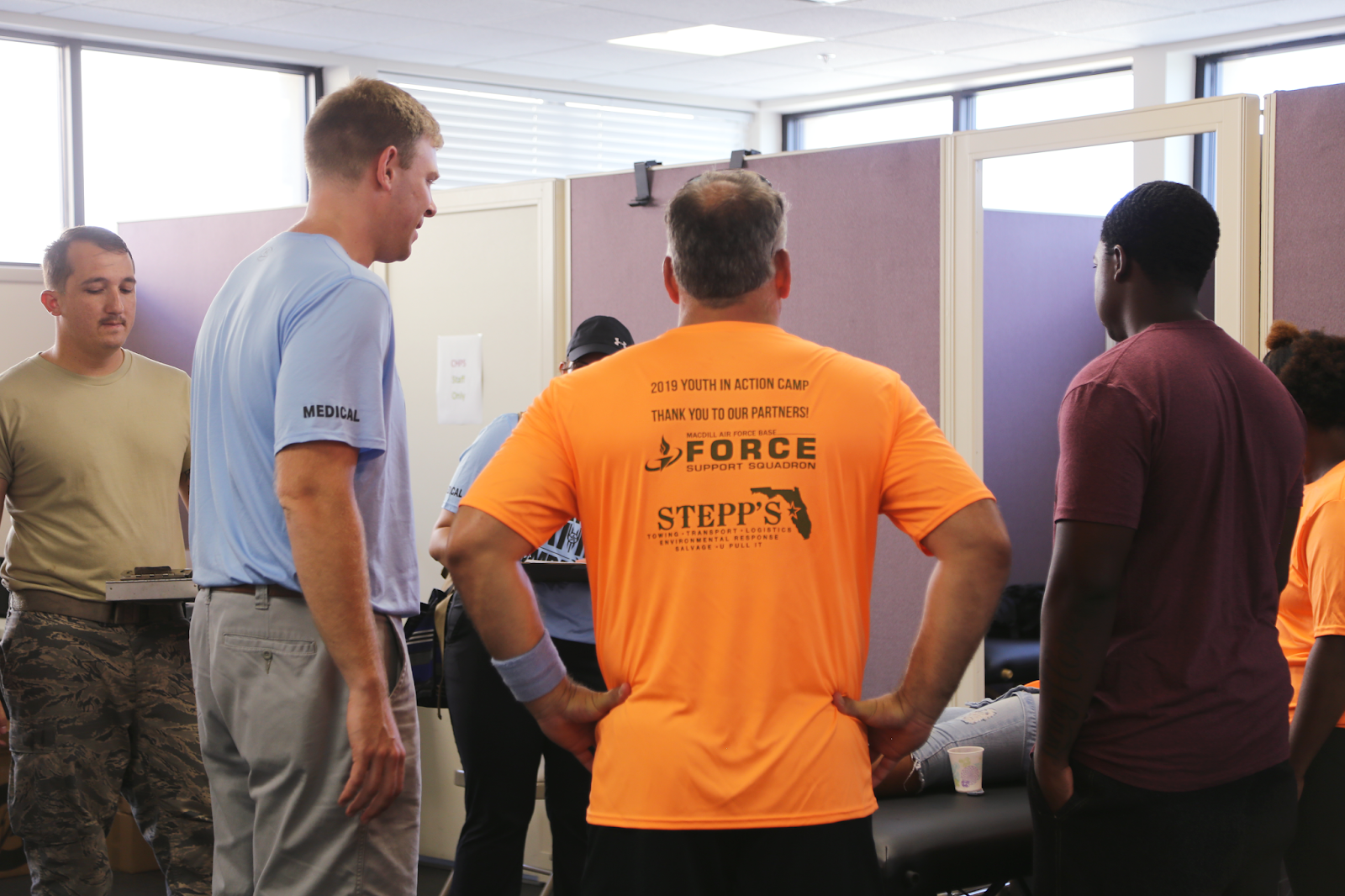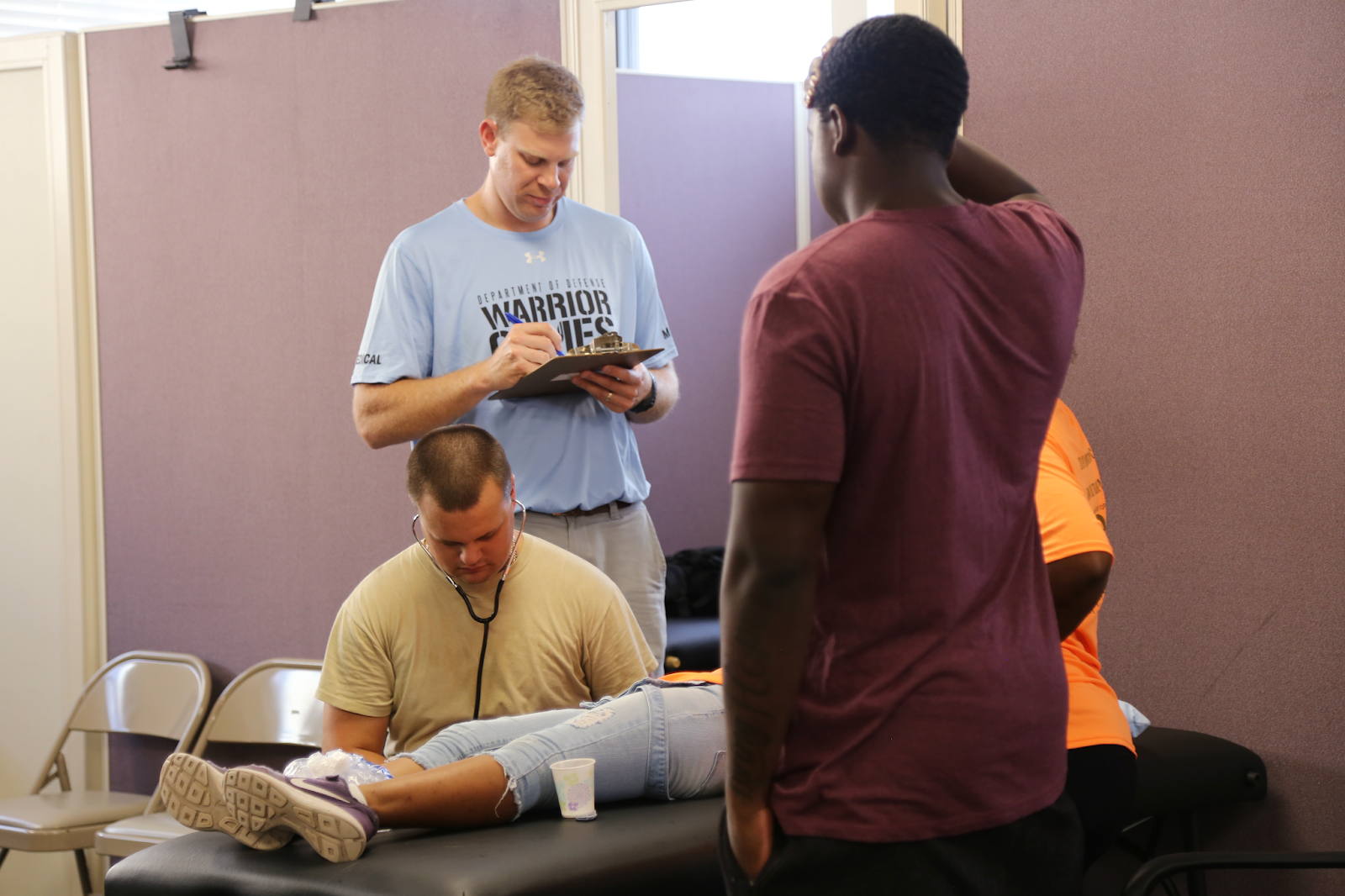USU alum in the ‘right place, at the right time’
“Are you a doctor? We need help!”
An employee of a youth camp for military children outside the Fitness Center on MacDill Air Force Base in Tampa, Fla., rushed into the base medical clinic, looking frantically around the room. The clinic had, up until that point, been otherwise pretty quiet that morning. With her was a visibly shaken and weak 8-year-old child, who the camp counselor believed had just suffered a seizure after seeing her collapse and convulse. Temperatures were already in the low 90s that morning, and there was little to no breeze. The humidity was also high.
“Yes, I can help, I’m a doctor,” said Air Force Capt. (Dr.) Korey Kasper, a physician currently in the National Capital Consortium’s Military Primary Care Sports Medicine Fellowship based at Uniformed Services University (USU).
Kasper helped the disoriented child to lie down and assessed her vital signs. He was able to determine it had not been a seizure, fortunately. She had fainted from the heat, and was going to be okay.
“It was actually a combination of the heat, dehydration, and suddenly stopping exercise that contributed to her fainting,” he said.
Kasper had been in the medical clinic that day in support of the 2019 Warrior Games, providing medical coverage for a nearby Air Force team’s basketball practice, and was the perfect person to address the effects of heat injury.
Kasper explained that when an individual suffers from a heat injury, their body can sometimes shake, so it can be easy to confuse heat exhaustion with a seizure.
 |
| Air Force Maj. (Dr.) Korey Kasper treats a young girl who had collapsed and started convulsing. She was initially thought to have had a seizure. |
Immediately after Kasper began administering care to the child, a team of medical providers poured into the room to help. After patting her down with cooling pads and making sure she was well hydrated, the team determined she was safe to leave the clinic.
“Hopefully, my care reassured her and her family that she can continue to be physically active, despite what she experienced on the field,” he said.
He added that it is very fulfilling to be able to use his skills and experience to treat patients of all ages in varied settings. In Sports Medicine, in particular, it’s also rewarding to be able to treat acute events that happen in an exercising patient, and being able to understand the changes in physiology that go along with adverse events.
Prior to his sports medicine fellowship, Kasper graduated from USU’s F. Edward Hébert School of Medicine in 2015 and completed his residency in Family Medicine. He attributes his training at USU to being able to act quickly in situations such as these, while also bringing calm to the situation.
“The diversity of training at USU at sites across the country and in academic hospitals, and not to mention our battlefield simulations, prepares its students to be flexible enough to deliver medical care in whatever varied setting the military provider faces,” Kasper said. “While this patient was not complex to treat, my training at USU prepared me to feel very comfortable treating patients in an unfamiliar place and with limited support, which I believe is the crux of military medicine and thus the value of America’s Medical School. For a USU grad, ‘being in the right place at the right time’ can be ‘anywhere at anytime.’”





